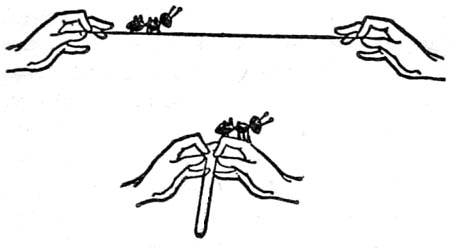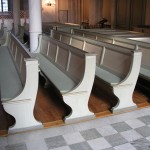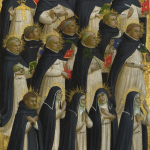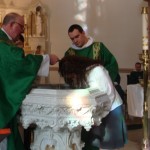In 2014, I’m reading and blogging through Pope Francis/Cardinal Bergoglio’s Open Mind, Faithful Heart: Reflections on Following Jesus. Every Monday, I’ll be writing about the next meditation in the book, so you’re welcome to peruse them all and/or read along.
In the second to last chapter of Open Mind, Faithful Heart, Pope Francis draws heavily on the letter to the Hebrews as he discusses Christ’s role as priest to his people. In fact, I think most of the chapter is simply quotations from that letter. But this part is from Pope Francis directly:
That body, those wounds, that flesh–all are intercession. What is more, there is no other way of access to the Father except this one. It is in beholding the flesh of the Son that the Father grants salvation. It is through the wounds of Christ that we encounter the father. Fully alive in his glorified flesh, Christ is bringing forth life in our midst as we take part in his flesh and enter in patience into his passion so as to share also in his glorification.
Christ breaks with the former priestly tradition by being both priest and sacrifice. He offers himself, rather than a calf or a dove. He, who is already whole and holy, is broken so that we can be drawn up after him into healing and life.
Part of the way I understood the Incarnation, as I started learning about Christianity, is that Christ, both fully human and fully divine, is a conduit for us (just plain human) to the divine. There’s no part of our lives that was not shared by Christ (including suffering, sorrow, and death), so we constantly lie tangent to him in his divinity, and the distance to God is always infinitesimal along the interface he provides.
(I was pretty heavily influenced by the diagram of the ant and the tessaract from A Wrinkle in Time)
The other math-y way I tend to think of it is that, by being incarnate, Christ alters our understanding of what it means to be human. At baseline, when we start trying to decide what humans are (social animals? political animals?) we wouldn’t include anything that looks like Christ’s own divinity or intimacy with the Godhead. But, if he’s a member of the set “humans” albeit a very unusual member of the set, the general definition has to be large enough to cover him.
I can imagine the sudden recognition of Christ’s membership in the “human” set suddenly distorting all our metrics for briefly summarizing what the members of the set are. Regular outliers (let alone Georg-ian ones) are bad enough for skewing the mean, but add in someone who’s infinitely good? The math on the morals of an average human gets ridiculous.
It feels a lot like the same kind of absurdity that underlies the divide-by-zero logic of the Christus Victor understanding of the atonement. Including Christ in a category tends to shatter the category, and, by the time it reforms to fit him, it’s gone through a “sea change, something rich and strange.”
Christ’s life and death distorts our old understanding of what it means to be human, like the heavy ball that pulls down a rubber sheet (and starts pulling everything else on the sheet toward it, along the incline). We’re freer to move toward him, following his example, as he makes all things new.













